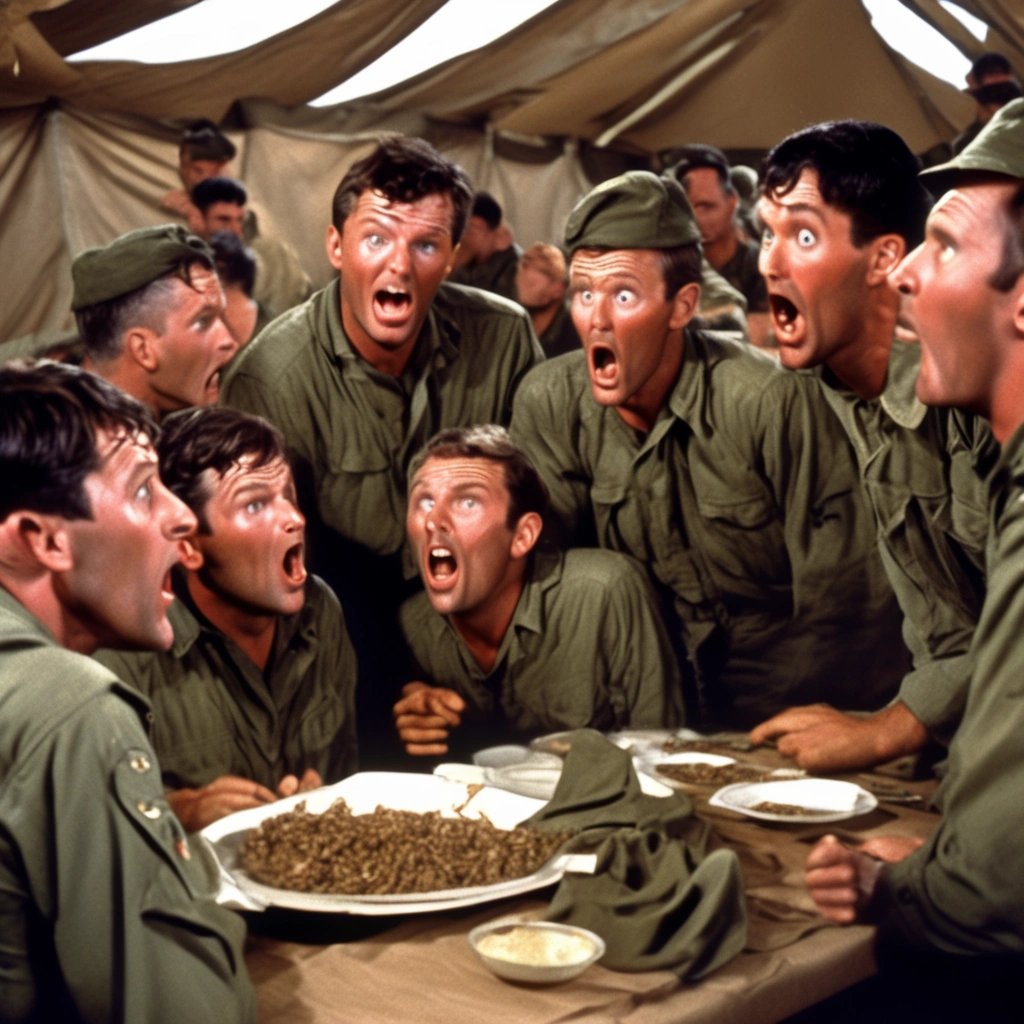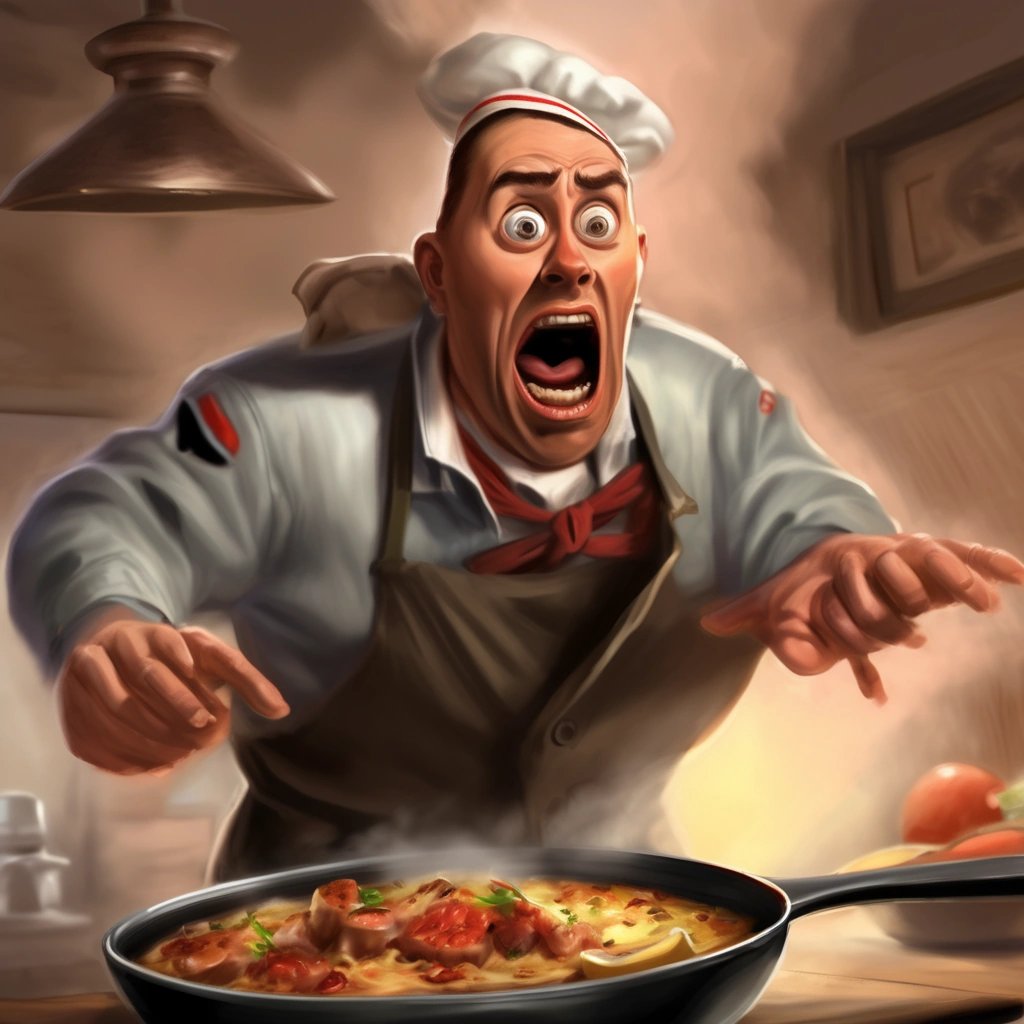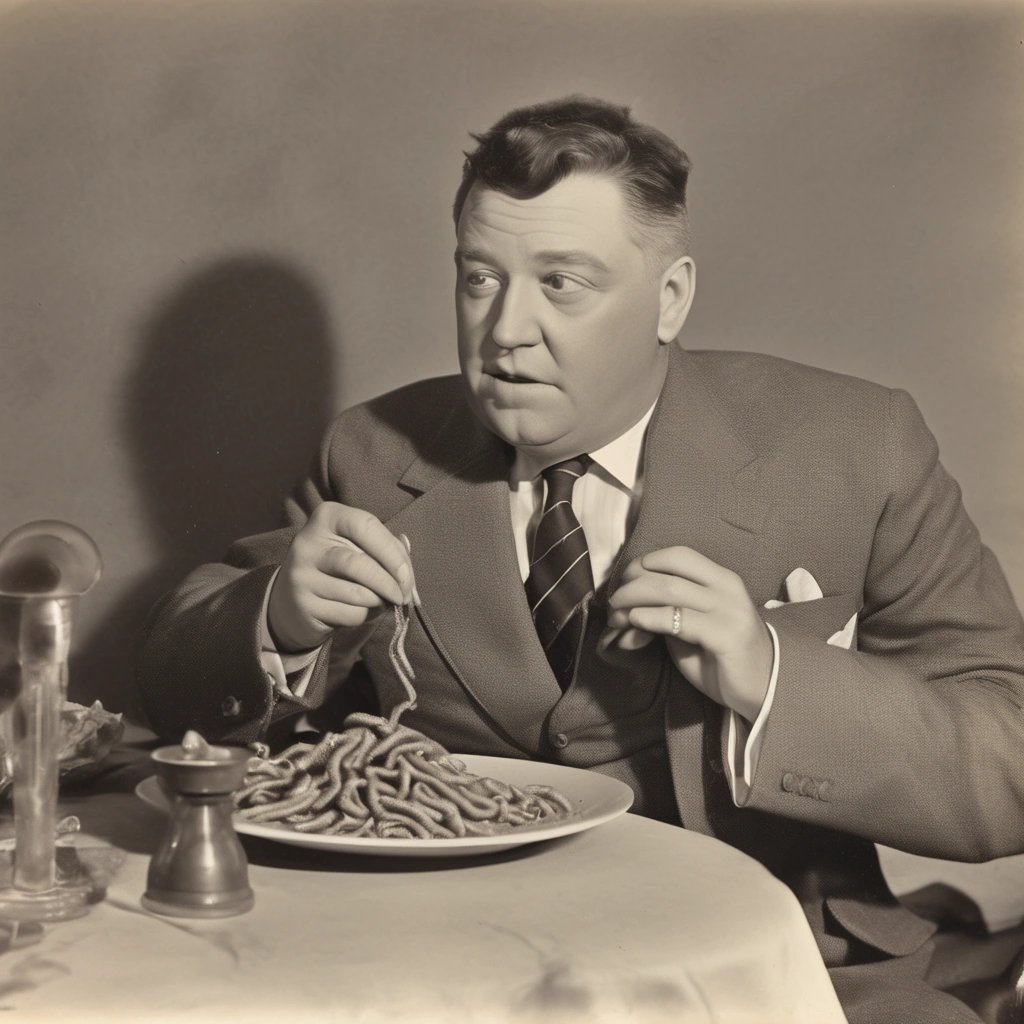There's an old saying that the military will change anyone, that the rigors of training and the uncertainty of combat often cultivate a sort of peculiar resilience unparalleled in the civilian world. Perhaps this hard-earned peculiarity is what brought noted M*A*S*H* surgeon, Frank Burns, to engage in a peculiar culinary experiment. That's right, Lieutenant Colonel Burns was recently discovered partaking of a unique source of protein in the mess tent - worms.
Initially, rumors swirled around the camp of a new and exotic cuisine being served, whispers of the mystery dish being anything from imported Canadian bacon to aged Korean ginseng. As such, the revelation of his peculiar dietary choice sent shockwaves throughout the entire 4077th Mobile Army Surgical Hospital unit. To say that his fellow surgeons were surprised would be a criminally understated term.
Now, the question on everyone's mind is: why? After all, the well-regarded mess chef, Private Igor, never misses an opportunity to cook up a hefty, classic American meal – at least within the confines of military standards. Yet, the normally buttoned-up Burns decides to go for a plate full of wriggling, slithery garden friends?! It's a leap that even an Olympic gymnast would find hard to stick.
In an attempt to pierce the veil of this enigma, several speculative theories riffled through the hospital staff. Some suggested that Frank had gone native, channeling the locals who according to camp legend, consumed such fare for medicinal purposes. Others mused that Burns, a consummate opportunist, saw in the wormy buffet a chance to thin the often-voracious competition for the mess tent's limited resources.
Naturally, we had to get to the bottom of this. In an interview with the press, Burns was as unflappable as ever, providing a perfectly pragmatic explanation. "It's all about survival," he declared with absolute conviction. "Have you ever tried to perform surgery after a standard-issue military lunch? It's like operating with a lead weight sitting uncomfortably in your midsection. This," he said gesturing to the bizarre dish, "digs tunnels."
Could this be the answer? Frank Burns, the fastidious and often-grumpy surgeon, adopting a flexitarian diet in the hopes of enhanced surgical performance? A surprising hypothesis indeed, but not entirely out of the realm of possibilities.
In the final analysis, perhaps this peculiar tale tells us more about the individual than the collective military experience. Burns, under the mantle of practicality, has transformed survival into an art, one that he enthusiastically nurtures with equal measures of tenacity and innovation. And if that means chowing down on a plate of squirming worms, so be it.
Ultimately, we can only look on in bemused wonder, thankful, at least, that we are not participating in Burns' gastronomic adventures. His worm-centric culinary choice may not find many enthusiasts among the 4077th's ranks, but it certainly cements Frank Burns' legacy as a surgeon with an indomitable and, dare we say, distinctly wormy spirit.


